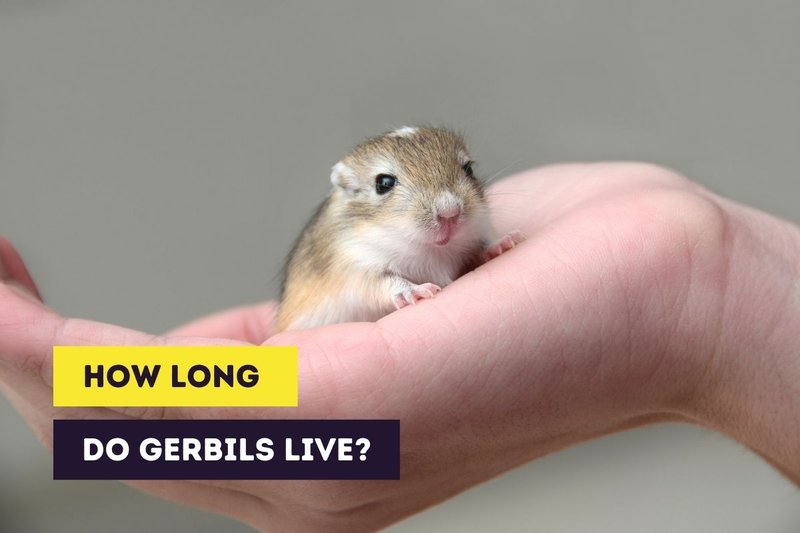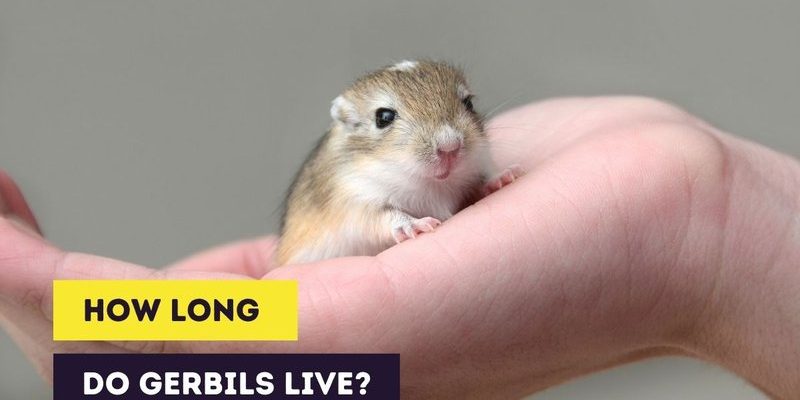
So, let’s dive into the world of gerbils, their lifespan, and what you can do to take care of them at different ages. Whether you’re considering getting one or already have a furry friend scuttling around your cage, understanding their life stages can help you provide the best environment possible.
Understanding Gerbil Lifespan
Gerbils, those cute little creatures that dart around their cages, typically have a lifespan of 2 to 4 years. While it’s not the longest lifespan in the pet world, it’s important to remember that every day counts. Just like any living being, a gerbil’s life can be divided into stages, and how well they are cared for can make a big impact on their longevity.
The average lifespan of a gerbil tends to swing towards the 3-year mark, but some may live longer, while others may not reach that age due to various reasons. Factors such as genetics, diet, and overall health play a significant role in how long your pet might live. That means a well-cared-for gerbil can sometimes surprise you with their longevity!
The First Year: Setting the Stage
The first year of a gerbil’s life is crucial. This is the time when they are developing and growing, so offering the right care is essential. When you first bring your gerbil home, you’ll want to ensure their cage is set up correctly. A spacious cage with plenty of bedding, hiding spots, and chew toys will promote a happy environment.
Diet plays a significant role too. During this stage, providing a balanced diet rich in pellets, fresh vegetables, and occasional treats helps promote healthy growth. Socialization is equally important; spending time handling your gerbil helps them become more comfortable with you, reducing stress and increasing their overall happiness.
Here’s a quick checklist for the first year:
- Quality bedding (aspen shavings, paper-based, or hemp)
- Nutritious diet (high-quality pellets and fresh veggies)
- Regular interaction (gentle handling and playtime)
- Clean and safe living environment (frequent cage cleanings)
Years Two to Three: The Prime of Life
As your gerbil enters their second and third years, they’re considered to be in their prime. During this time, they’re usually at their most energetic and playful. However, this is also the phase where some health issues may start to arise, so it’s crucial to keep an eye on their behavior and health.
Encouraging playtime is key during this stage, as it helps keep them physically fit and mentally stimulated. You can create a safe area outside their cage for them to explore, which can help them burn off energy. Be sure to supervise them, as gerbils are curious creatures and can quickly get into trouble!
Keep an eye out for any changes in eating habits or unusual behaviors, as these can be signs of illness. Regular vet checkups are a good idea to ensure your gerbil is healthy. Here’s what to focus on during these years:
- Regular vet visits for health checks
- Interactive toys to keep them busy
- Monitoring for any health concerns
- Maintaining a clean environment to prevent sickness
Year Four and Beyond: Golden Years
Once your gerbil hits four years old, they’re considered a senior. It’s important to adjust their care slightly to accommodate their changing needs. They may become less active, and their dietary requirements may shift. A senior gerbil might benefit from softer foods or specialized pellets designed for older pets.
During this time, providing them with extra comfort is essential. Ensure their cage is easily accessible, with minimal climbing involved, and keep their bedding soft. You might also notice they spend more time resting, and that’s perfectly normal.
You may want to consider:
- Soften their diet with easily chewable treats
- Provide more comfortable bedding
- Keep a close eye on their health; be observant of any changes
- Maintain a stress-free environment with fewer sudden changes
Common Health Issues in Gerbils
Just like any pet, gerbils can face health challenges as they age. One common issue is dental problems. If you notice your gerbil not chewing their food properly or losing weight, it could indicate dental problems.
Another issue is tumors, which can be more frequent in older gerbils. Keep an eye out for lumps or changes in behavior. Regular vet visits become vital as your gerbil ages, enabling early detection of potential problems.
Here’s a quick list of health issues to monitor:
- Dental problems (dropping food, excessive salivation)
- Tumors or lumps
- Changes in eating or drinking habits
- Sudden weight loss or lethargy
Tips for Extending Your Gerbil’s Lifespan
Taking proactive steps can help ensure your gerbil stays healthy throughout their life. Here are a few tips to consider:
1. Balanced Diet: Focus on a high-quality, balanced diet. Look for pellets designed for gerbils that include necessary vitamins and minerals.
2. Social Interaction: Spend time with your gerbil daily. Just like us, they thrive on love and attention.
3. Clean Habitat: Regularly clean their cage and replace bedding to minimize the risk of diseases.
4. Avoid Stress: Keep their environment stable. Avoid loud noises or sudden changes that might upset them.
With a little extra effort, you can help your gerbil enjoy a longer, happier life.
Understanding how long gerbils live and how to care for them at each stage of their life can make your experience as a pet owner truly rewarding. From their first days of exploration to their golden years, every stage has its joys and challenges. With a dash of love, attention, and proper care, your gerbil can thrive for several years by your side. So, as you continue on this journey, remember: every moment counts, and your efforts can lead to a cherished bond with your furry friend!

